
We’ve talked about how to start a digital product store and how to create a business plan – now let’s look at the different ways you can structure your digital product business.
Deciding on a business model is an important step in the process of setting up your digital product store, but it largely depends on what kind of products you’re selling and what kind of relationship you want to have with your customers.
In this week’s edition of The EDDit, we break down some different business model options and talk about things to consider when making your choice.
Buy once
When it comes to selling digital products, the most basic business model is just like many brick-and-mortar stores: Customers buy an individual product once, and either license or own it from there on. Whether you sell individual products with options for saving on bundles, adding on extras, or upgrading to an all access pass (for example), the fundamental structure is still the “buy once” model.
If your products vary greatly in price, this model allows you flexibility in that department. It also works well if you’re running a marketplace, as it can be more complicated to deal with pricing and commission payments for multiple sellers.
This model also works particularly well for people selling products that are designed to be consumed by a single user, such as exclusive ready-made logos:
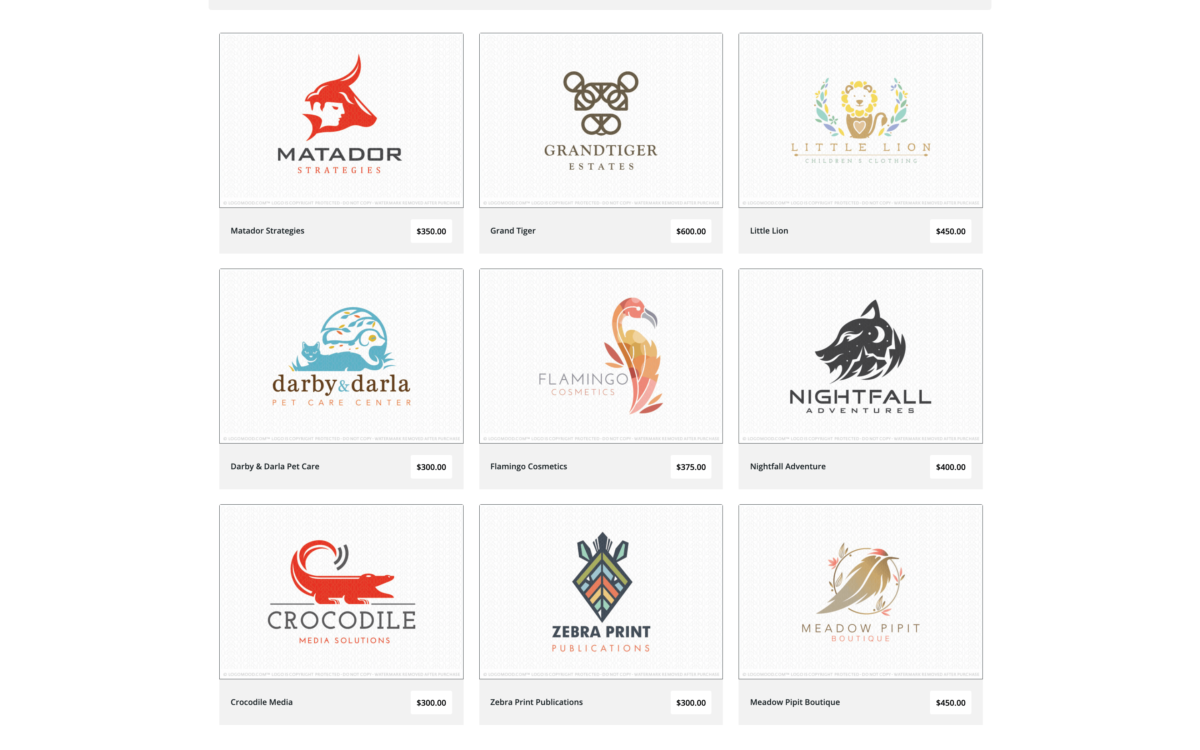
Bundles
Some digital product stores focus on selling bundles that contain multiple products. The idea is that customers can get more value for their money – and you can justify a higher price tag per item, too.
Bundles can be especially good if you want to sell a variety of products, or if you run a marketplace. Just keep in mind that if you decide to combine products from different sellers, you’ll have to account for that when you’re pricing items and sending sales commission payments.
Here are a few common types of bundles sold using this model:
- Themed bundles – a variety of products within a certain theme, such as a variety pack of holiday vectors, or a bundle of professional document templates
- Product series bundles – multiple products within the same series or collection
- “Quick start kits” – a bundle containing everything the customer needs to get started on a certain topic, such as a beginner’s graphic design bundle with an intro course, a collection of graphic assets, and an audio guide.
Monthly memberships
The membership model has become increasingly popular amongst the digital product community. This is in part because membership revenue has the capacity to be more predictable and reliable than revenue from individual sales, which can fluctuate a lot from month to month.
Additionally, the cost of retaining an existing customer is much lower than acquiring a new one, making the membership model attractive for multiple reasons.
Some people may prefer to sell their digital products this way just for simplicity’s sake, or perhaps the type of products they create are better suited for one-off purchases. For example, someone selling digital artwork with highly variable pricing might want to sell their products individually, whereas a stock photographer might prefer the membership model.
Some membership sites allot members a certain number of download credits to use each month; Others simply give members unlimited access to everything for a monthly fee, or certain levels of access to content, as is the case with membership tiers.
HookSounds offers an all-inclusive single-tier membership that gives users access to everything on the site:
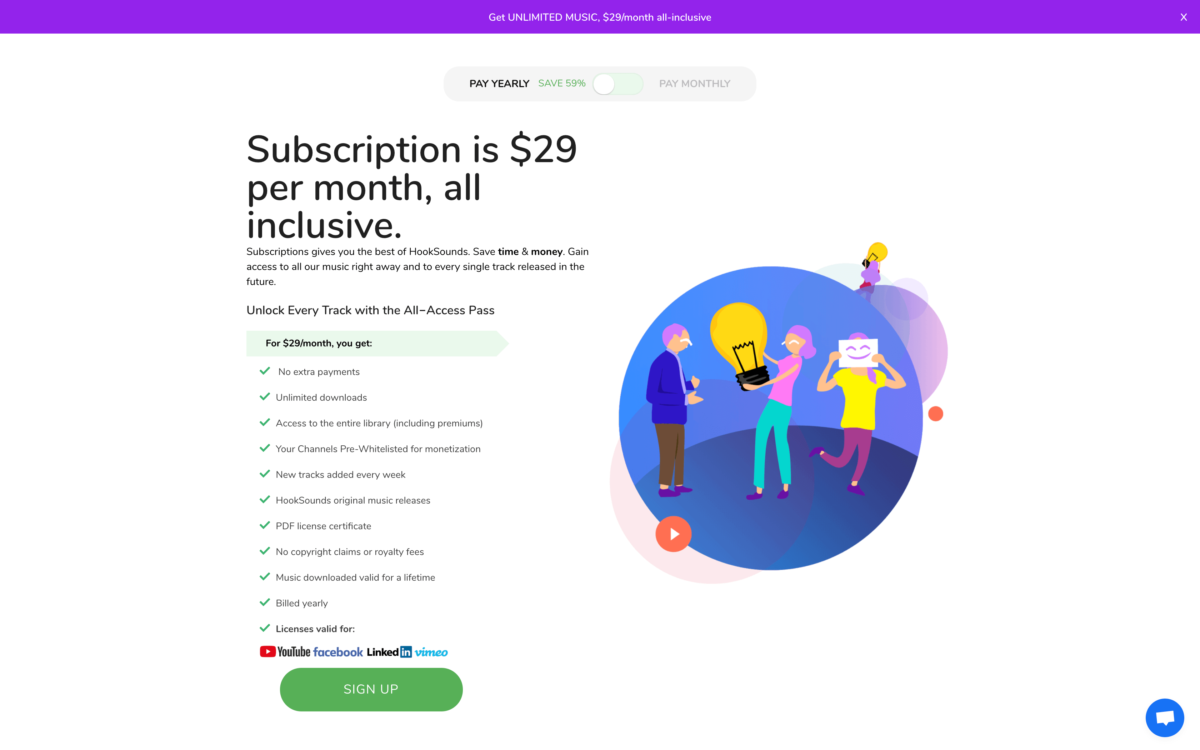
Graphicfy offers customers a monthly, yearly, and lifetime membership option, as well as a free trial:
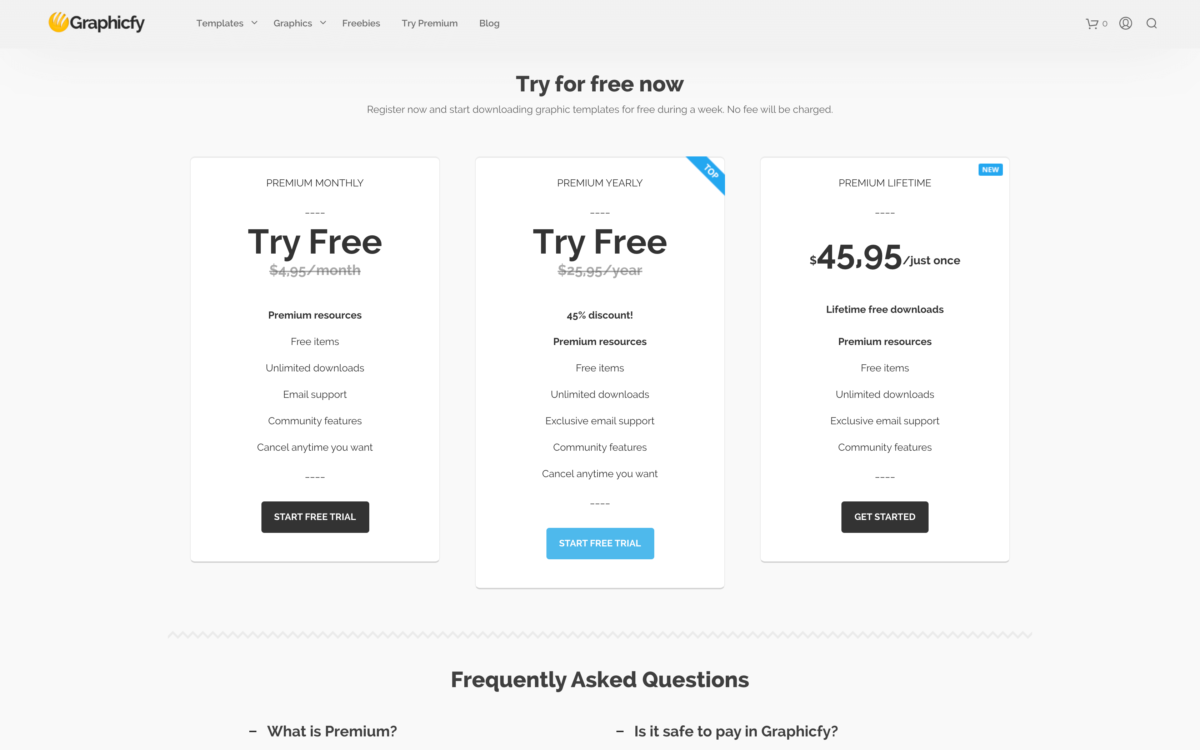
All access
If you want your customers to have access to everything on your store, but you don’t want to go the monthly membership route, the all access model might be right for you. All access passes let customers download whatever they want within the limitations you set, and can be used as the primary business model, or in addition to other models.
For example, you could have a standard digital product store selling individual products, but then offer your customers the option of buying an all access pass that lets them download everything on your site for a higher fee.
Support & updates
With some digital product types – software in particular – what you’re really selling is a license to use the product; Customers don’t actually own it. If you’re setting up a digital product store in this capacity, then, your model would be based around providing ongoing support and updates to your product.
Often, these types of products are available to customers as a yearly plan that covers support and updates, as opposed to a monthly membership per se – although some sites do offer monthly pricing as a payment alternative.
Some stores even offer lifetime licenses for a one-off fee:
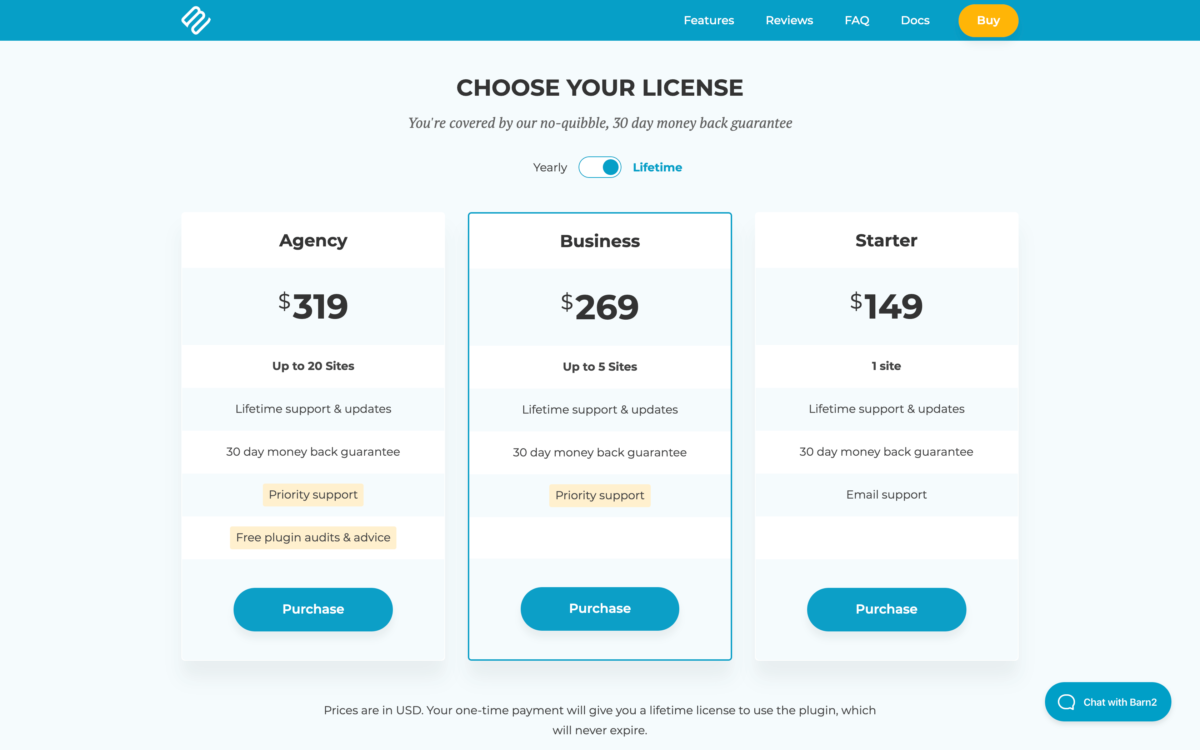
How to choose?
Now that we’ve discussed some of the key elements of each model, which one is right for you? Well, it largely depends on what kind of digital products you’re selling.
If you sell higher-priced products like software, web apps, high-end digital courses, themes and plugins, or services, you’re probably more likely to be looking at the membership model, all access, as well as support and updates. For example, many software companies offer tiered pricing, as well as all access passes.
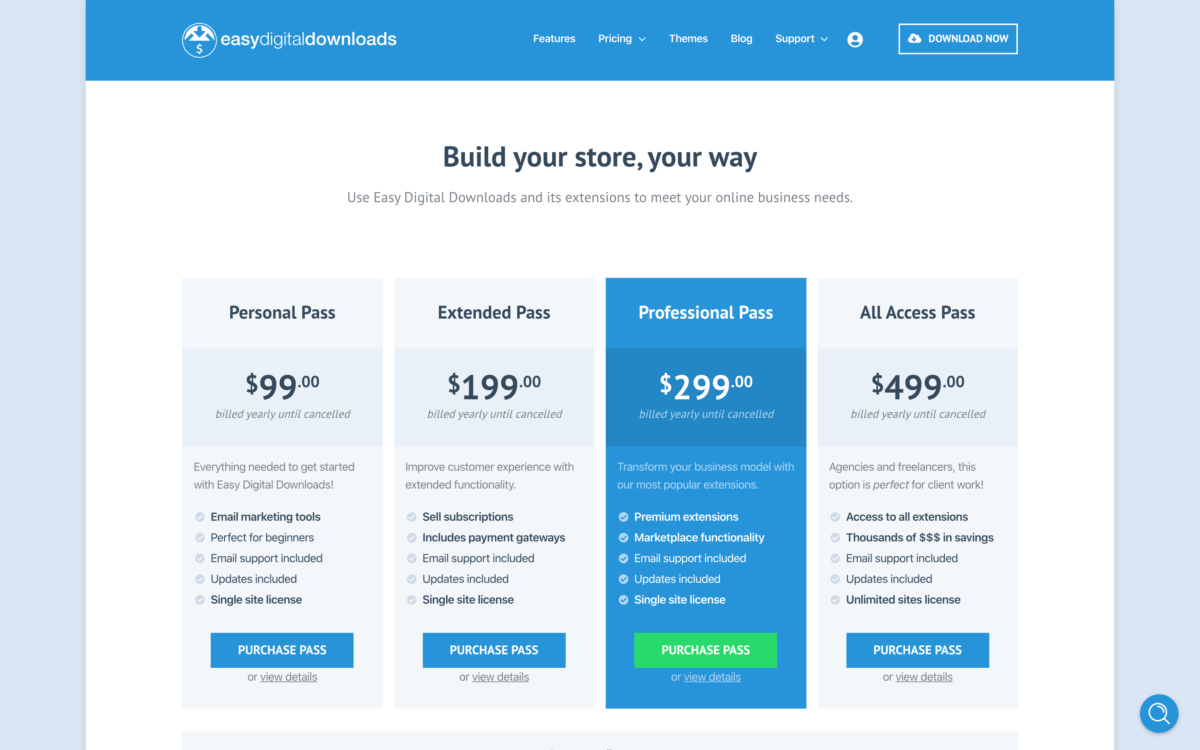
If you sell productized services, you really could do anything from the buy once model to memberships, depending on your goals. Do you want to sell your services individually, or do you want recurring clients on a monthly basis?
The same thing applies to products like graphics, photos, audio and music, video, documents, and eBooks; it’s just a matter of your needs and preferences.
What business model has worked for your own digital product store? Do you have any insights to share? We’d love to hear them, so leave a comment below!
Illustration by Jessica Johnston.
Using WordPress and want to get Easy Digital Downloads for free?
Enter the URL to your WordPress website to install.
Disclosure: Our content is reader-supported. This means if you click on some of our links, then we may earn a commission. We only recommend products that we believe will add value to our readers.
3 comments
Comments are closed.
This is a very insightful article! Glad to know other business models we can try out. Cheers!
Does EDD Software Licensing work with C++ code too? I noticed the C# code, but the WebReqest() functionality is a .NET library which isn’t used in C++.
How can I get it to work with a Downloadable C++ application?
Jeff,
So long as you can query a remote JSON API from C++, yes it will be doable.